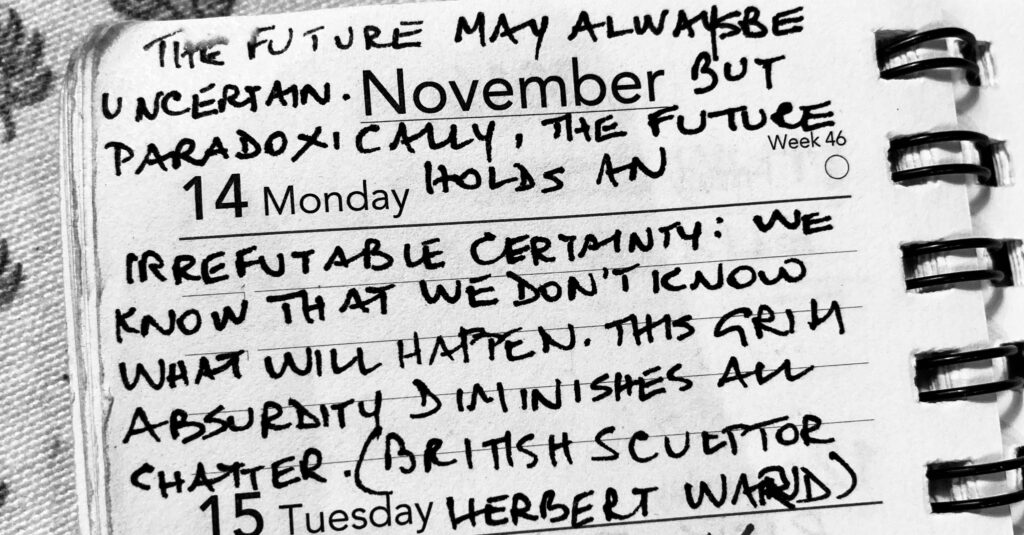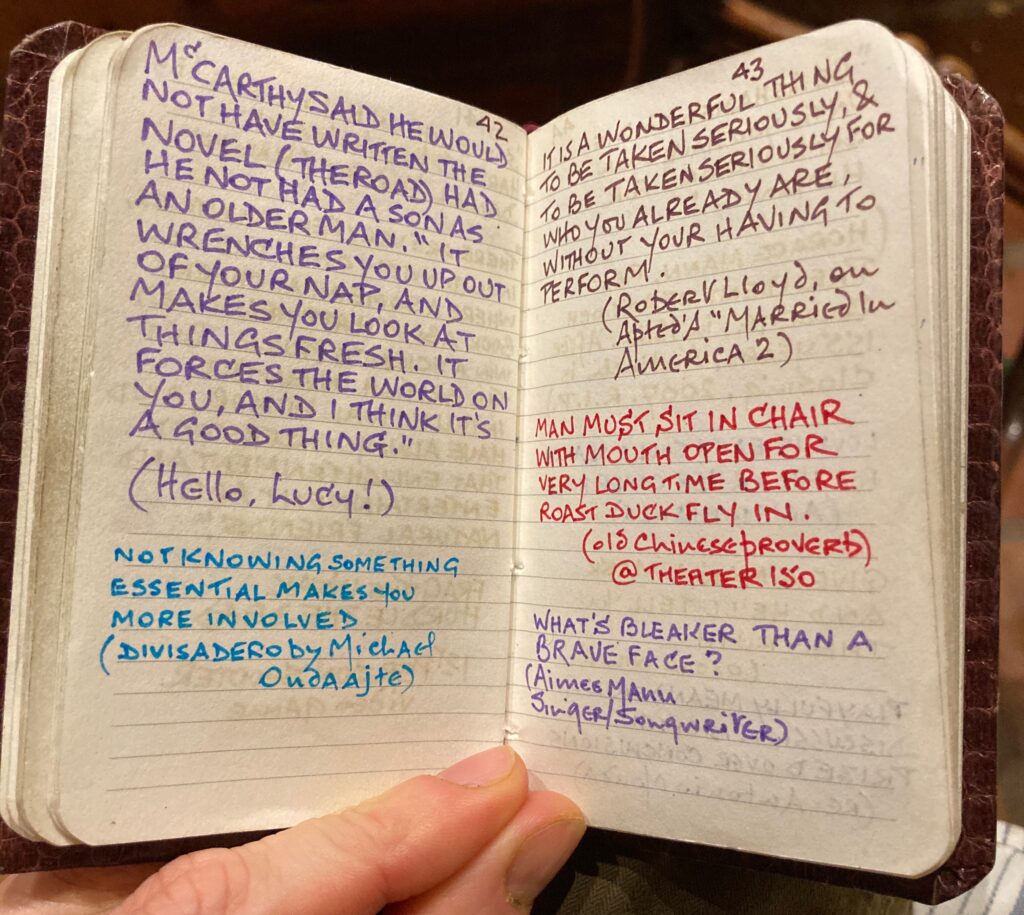Piper Haywood wrote one of those very good posts last week—a cross-section of personal interests that manages to be both minutely specific and widely resonant. It was full of thoughts about female furniture designers I’d never heard of and Joan Didion essays on notebooks and ideas about the distinction between personal blogs and…whatever else it is that we do to try and share ourselves on the internet. I loved reading it. It also reminded me of something I’ve been meaning to write about here.
It seems silly to say, but I wasn’t prepared for just how often I’d come face to face with the things that made me now that I’m living at home.

My dad never taught me about Commonplace Books or Zibaldones, but he kept one religiously.1 He was always hunting for quotes and anecdotes to fold into his teaching or add to his column in the local quarterly magazine. He also inscribed them on the collaged, abstract bookmarks he made for everyone he met. A great deal of his creative expression boiled down to this magpie tendency—a delight in gathering raw materials and mashing them together into something new.
Piper shared a quote from Didion where she talks about the notebook as “bits of the mind’s string too short to use, an indiscriminate and erratic assemblage with meaning only for its maker.” This certainly seems to have been the way my dad approached his pocket-sized collections. His penmanship makes every page feel like a work of art, but I don’t think they were primarily made to be shared—at least not in this form.
And yet below every quotation about children or parenting there’s a note:

There’s no way he could’ve known I’d open to this page, having just read Ondaajte’s poetry for the first time last November. Having listened to Aimee Mann in college. Line after line, I see so many names and themes that have showed up in my own obsessive collecting.
When Didion lists the kinds of people who keep notebooks, she closes with “children afflicted apparently at birth with some presentiment of loss.” It makes me shudder in recognition.
Growing up, I was all too aware that my parents were the age of my friends’ grandparents. My extended family weren’t down the road, but scattered throughout England and South Africa and Canada. I didn’t have siblings. I’ve been bracing for as long as I can remember to try and make sure I’ll be able to survive on my own. (No wonder I placed such a high value on independence in my career.)
I think I felt that keeping my parents had to be an act of willpower—one I could fail at and therefore had to approach with constant vigilance. But when I see these notebooks, something shifts in me. These words are confirmation of something I’m trying to learn in my bones: I couldn’t lose these people even if I tried. Their patterns made my patterns, at least in part, and as long as I pursue those patterns, I carry them forward in the world.
My inheritance is ubiquitous.
Commonplace.
1. I don’t know how to do tenses with him. He doesn’t do these things anymore, but to speak about any of it in the past tense makes it sound like he’s dead. He’s not dead, but vast parts of him are no longer present. How do I talk about that? I don’t know. ↩